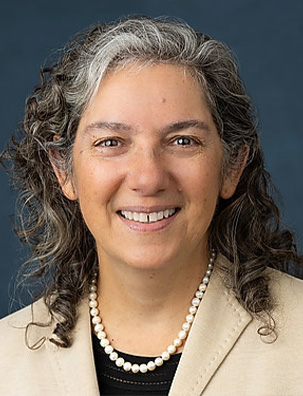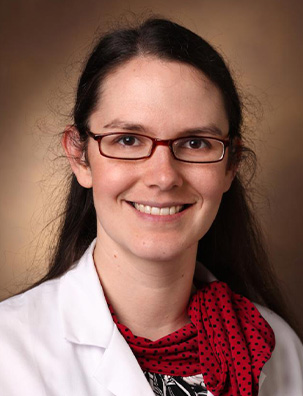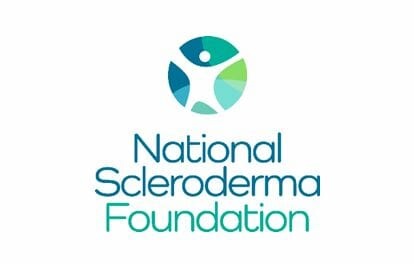ILD Day
Register now for ILD Day!
ILD Day returns! Join us for a very special webinar presentation on Wednesday, September 18 at noon central time with Dr. Sonye Danoff. This year, the topic of ILD Day is the diagnosis.
Dr. Danoff will talk about:
- How doctors recognize the disease
- Finding the right treatments for you
- Your care team and the roles they have in your journey
- Advocating for yourself
❌ Can’t make it? Register anyway, and we’ll provide you with a link to the recording when it's available. All recorded webinars are published on the PFF YouTube channel.
Meet the experts


Sonye Danoff, MD, PhD
Erin Wilfong, MD, PhD
Sonye Danoff, MD, PhD is an Assistant Professor in the Division of Pulmonary and Critical Care Medicine and Co-Director of the Interstitial Lung Disease Clinic at Johns Hopkins Medicine. Dr. Danoff is a specialist in diseases causing fibrosis in the lung, particularly those associated with autoimmune diseases including myositis. She actively participates in local, regional, and international collaborative groups in the study of ILD.
Erin Wilfong, MD, PhD, is an Assistant Professor of Medicine in the Division of Rheumatology and Immunology, Department of Medicine, at Vanderbilt University Medical Center. Her laboratory aims to understand immune dysregulation in the idiopathic inflammatory using mass cytometry and single cell transcriptomics. She is also the principal investigator for the Myositis and Scleroderma Treatment Initiative Center (MYSTIC) Cohort and biorepository. She is currently funded by a K08 and a Myositis Association Pilot Award. Dr. Wilfong's clinical interest is in myositis related interstitial lung disease and life threatening rheumatic disease.
Quick Facts About Interstitial Lung Disease
Interstitial Lung Disease (ILD) is the umbrella term used for a large group of diseases characterized by inflammation and/or scarring in the lungs. The inflammation and scarring can injure the lungs, making it difficult to breathe and get oxygen to the bloodstream. Shortness of breath is a common symptom of ILD, along with dry persistent cough, fatigue and weakness, chest discomfort, "clubbing" of the fingertips, loss of appetite and unexplained weight loss.
- Pulmonary fibrosis (PF) means scarring of the lung and can be seen in many types of ILD.
- The inflammation and scarring can injure the lungs, making it difficult to breathe and get oxygen to the bloodstream.
- More than 250,000 Americans are living with Pulmonary Fibrosis (PF) and ILD.
- There are more than 50,000 new cases of ILD diagnosed annually in the U.S.
- All interstitial lung diseases affect the interstitium, a part of the lung.
- The damage caused by ILD can be irreversible and may worsen over time.
- ILD is difficult to diagnose. It may be debilitating and in some cases, incurable.
Watch webinars from previous years
Breathing Better with Supplemental Oxygen
This one-hour webinar presentation will discuss why oxygen is a physiological problem with interstitial lung disease (ILD) and why supplemental oxygen is recommended. The webinar included important info about portable oxygen containers, how to get involved in oxygen advocacy initiatives, and where to find helpful information and resources.
Progressive Pulmonary Fibrosis: What Patients Need to Know
PPF is defined by progression, which means that fibrosis builds up over time, gradually causing worsening breathlessness and the need for increasing amounts of oxygen. Monitoring your ILD and detecting PPF early is important. Some patients will progress more slowly, and others will develop respiratory failure more quickly, with some becoming very ill within months or just a few years after their diagnosis.
Symptoms of ILD
Shortness of breath is a common symptom of all ILDs. Other signs and symptoms include:
- Persistent, dry cough
- Fatigue and weakness
- Chest discomfort
- “Clubbing” of the fingertips (thickening of tissue under fingernails)
- Loss of appetite
- Unexplained weight loss
Causes of ILD
Unknown Causes of ILD
Some ILDs do not have a known cause. Idiopathic pulmonary fibrosis (IPF) is one of the most common forms of ILD and has no known cause. IPF occurs primarily in older adults and is limited to the lungs. IPF is a progressive disease, which
means that the lung fibrosis gets worse over time. The progression is variable, with some people experiencing slower but steady progression and others developing more rapidly worsening disease.
Known Causes of ILD
Patients with some inflammatory and connective tissue diseases are at a higher risk for ILD. These conditions include rheumatoid arthritis, systemic scleroderma, myositis, including dermatomyositis and polymyositis (DM and PM), sarcoidosis, and Sjögren's.
View the drop-down list below for additional information on these diseases that can cause ILD.









